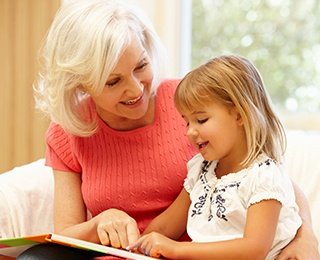When was the last time you hugged your parent? When was the last time you held the hand of an older adult? When was the last time you snuggled close to your mom or dad? Touch is one of the basic needs of humans.
Living in a Touch-Phobic Society
Yet Americans don’t like to be touched. American teens don’t touch as much—and are more aggressive—than French teens. Americans prefer 2 to 4 feet of personal space, compared to Latin Americans and Middle Easterners, who prefer half that distance. “Most of us, whatever our relationship status, need more human contact than we’re getting. Compared with other cultures, we live in a touch-phobic society that’s made affection with anyone but loved ones taboo,” said Matthew Hertenstein, PhD, director of the Touch and Emotion Lab at DePauw University.
How Touch Helps
Studies performed by the University of Miami’s Touch Research Institute indicate that touch can:
- Lessen pain
- Lower blood glucose
- Slow the heart rate
- Lower blood pressure
- Improve pulmonary function
- Improve immune function
- Enhance alertness and performance
Other studies show:
- Hugs strengthen the immune system, relieve pain and depression, elevate mood, reduce stress, decrease the heart rate, and may prevent Parkinson’s.
- Eye contact and a pat on the back from a doctor may increase the survival rate of patients with complex diseases.
- Therapeutic touch calmed people with dementia.
- Touching makes you appear more trustworthy.
- Waitresses who lightly touched customers on the hand and the arm received bigger tips.
- A light touch makes people more agreeable when you request something of them.
- Touching promotes bonding.
- A friendly pat by a teacher increases student engagement.
- The more touching among team members, the better the team performed.
- Informal massage reduced depression in people giving the massage and improved the health of those receiving.
Are Seniors Untouched?
Seniors receive the least touching of any age group. Researchers assert that the reason may be that many older adults live alone and may be socially isolated. Touch is especially important for older adults, who may be suffering from lack of social interaction, depression and chronic illness. Sadly, there are very few scientific studies conducted on specific benefits of touch for seniors, although anecdotal evidence exists.
Reach Out and Touch
When was the last time you touched your parent?
Here are 10 ways to help your parent receive the physical contact all humans require:
- Hug your parent when you greet them and depart.
- Hold their hand and look them in the eyes while you’re talking.
- Offer your arm or hold their hand while you’re walking together.
- Dance together.
- Brush your mom’s hair and put it up.
- Give your parent a back or foot rub.
- Perform an aromatherapy hand massage.
- Bring a pet so your parent can touch it.
- Sit next to each other on the couch or perch on the edge of their bed instead of sitting in separate chairs.
- Schedule regular massages for your parent.
How to Hug
In order to get the maximum benefits of hugging, press your hearts together. Move your face to the right of theirs. Use your arms to pull the other person closer. Slowly inhale and exhale for a minimum of two deep breaths or 5 seconds, whichever is longer. While you’re hugging, don’t let unrelated thoughts intrude; instead, think of how much you value the person.
The Arbors: Combatting Social Isolation
Lack of human contact is only one of the problems of social isolation. It may cause depression, anxiety, and low self-esteem. Life at The Arbors Assisted Living Retirement Communities is expressly designed to prevent social isolation among our independent living and assisted living residents. Our dining room gives residents space to feel comfortable while bringing them together to interact. Numerous programs encourage residents to make friends. Find out more about how we can help your parent avoid social isolation and loneliness by contacting us.

